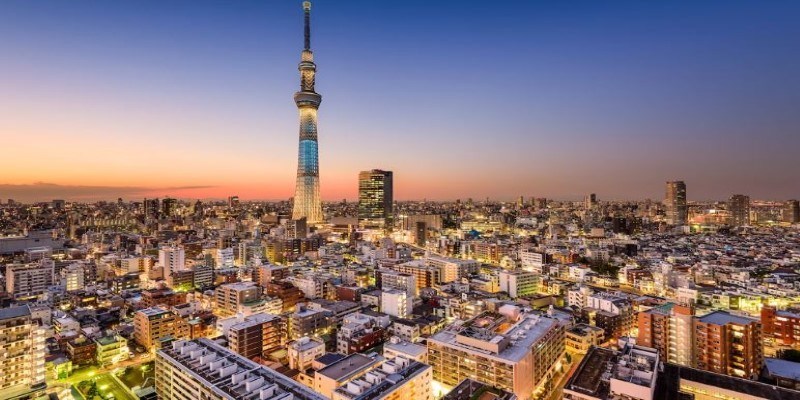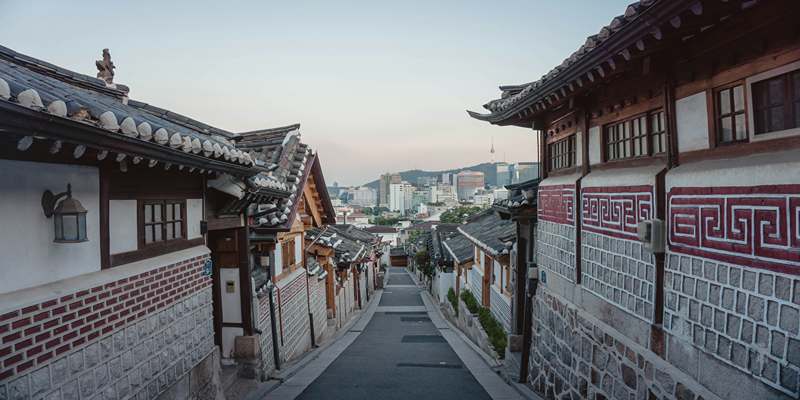Life in South Korea shows off excellent services mixed with modern features and a rich culture. Still, recognizing the cost of living there helps those planning to live there for a long period. Depending on how you live and where, expenses in South Korea may differ, but it is possible to get by on an average budget. It is important for people in the United States to note their typical monthly expenses for things like housing, groceries, healthcare, and education. This guide describes the major types of expenses to display what it’s like to live in Korea. This guide teaches you how to budget well for any reason for moving.

Housing and Accommodation
Rental Costs in Major Cities
In South Korea, the price of housing is lowest in some cities and highest in Seoul. A one-bedroom in the center of Seoul can run from 800,000 to 1.5 million KRW, but you could get the same for less in the suburbs. You’ll find that rent is lower in cities like Busan or Daegu. Studio apartments in officetels and shared housing are favored by students and people living alone. You could also choose a hasukjib as a way to cut your living costs. Your monthly rent should be a major factor when estimating how much it will cost you to live in Korea.
Housing Options and Deposits
When renting an apartment in Korea, you can choose between jeonse, where you pay all the money upfront, or wolse, where you pay some money and a fixed monthly sum. Since the deposit for jeonse is tens of millions of KRW, only people with a lot of money can try it. You can purchase Wolse quickly, but it involves monthly subscriptions. It’s common for expats to consider wholes because they save money on initial payments. Remember, deposits for housing contracts are usually from 5 to 20 million KRW. These systems will help you with your finances as you follow your Korea expenses guide.
Utility Expenses
Services such as power and water are cost-effective in South Korea, but the total can grow with additional use. People in South Korea can expect to pay between 150,000 and 300,000 KRW per month on utility costs for electricity, gas, water, and internet. During the summer and winter, having to use air conditioning and heating increases household costs. Both internet and mobile networks operate fast and are very reliable. You can even buy them both from leading suppliers as a package. The Internet in Korea is about 30,000 KRW per month, and mobile phone plans begin at 40,000 KRW each month. Your true monthly budget for South Korea should include utilities in the calculations.
Daily Living Expenses
Food and Grocery Costs
For individuals who cook their meals at home, food in Korea is moderate in price. The cost of rice, tofu, vegetables, and fruits found in local markets is affordable. Neither imported products nor meat is cheap. One person in Korea usually needs 60,000 to 100,000 KRW for their weekly groceries. You can buy lunches at casual restaurants or dosirak, and a meal usually does not cost more than 12,000 KRW. Gimbap, bibimbap, and kimchi jjigae are a few traditional Korean dishes that are both tasty and affordable.
Transportation and Commuting
South Korea’s public transport is easy to use, very clean, and inexpensive. Both Seoul and Busan have a fully developed subway and bus system, with each journey starting at 1,250 KRW. You can buy a monthly train pass for 55,000 KRW. If you prefer a taxi, it will cost around 4,000 KRW. A lot of the population prefers taking public transport every day since it’s very convenient. The cost of riding trains or express buses from one town to another is affordable. When you include transportation costs, you will know exactly how much you can budget for all your activities in South Korea.

Healthcare and Insurance
People in South Korea enjoy high-quality healthcare that is easy to access due to a national insurance plan. According to income and a person’s health insurance policy, monthly health insurance premiums can vary from 100,000 to 150,000 KRW. Most people must pay a co-pay when they get check-ups, specialist visits, or receive medical care in the US. You do not have to pay an excessive amount for prescription medication. You can get additional insurance for your dental or vision needs. South Koreans benefit from a fast and efficient health care system. For anyone planning a trip to Korea with specific health needs, including healthcare in your budget is necessary.
Additional Living Costs
Education and Childcare
Different schools charge different fees for education. You may find public schools cost very little, but private institutes (hagwons) and international schools are often more expensive. Prices for childcare in South Korea vary from 300,000 KRW to 700,000 KRW a month. It is a good idea for parents to include school costs when they calculate their budget for living and studying in South Korea.
Internet and Mobile Services
Koreans have access to excellent internet and excellent mobile networks everywhere. The average cost for an internet connection is 30,000 KRW every month. Mobile plans are available for prices between 40,000 and 70,000 KRW every month. Buying more than one service from a single provider could be cheaper. Your Korea expenses guide should have estimates for the monthly expenses you can expect.
Conclusion
You need to understand the costs of living in South Korea before you move or settle there. Having housing, getting groceries, taking transportation, and receiving healthcare are all costs that must be planned for. Seoul is more expensive than other cities, but you can find more affordable places to stay elsewhere. By reading this guide on expenses in Korea, locals can ensure they live within their budget and have a healthy lifestyle. For students, workers, or people who have retired, it is easier to handle living costs in Korea with set guidelines. When you make a budget and plan wisely, South Korea is a great place to live.












